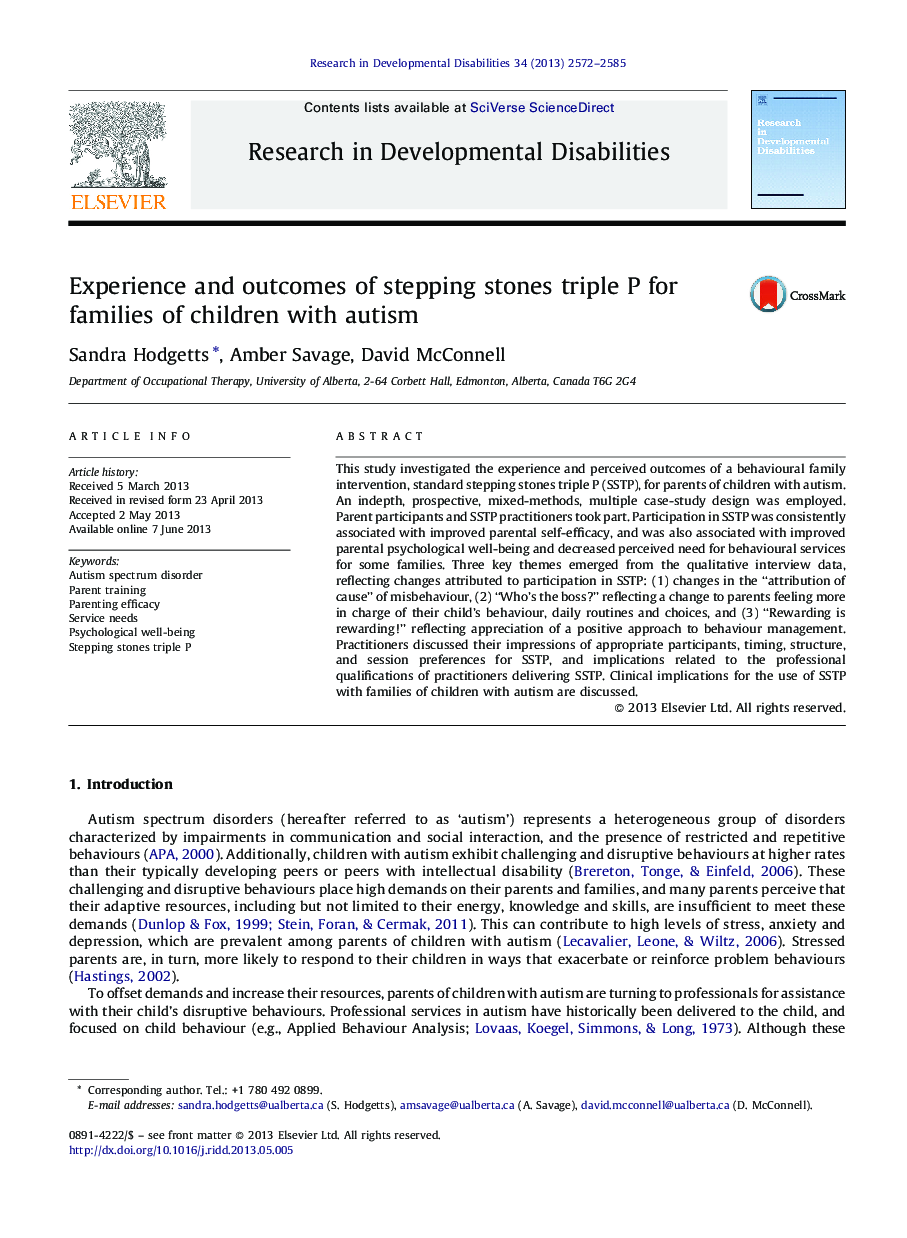| Article ID | Journal | Published Year | Pages | File Type |
|---|---|---|---|---|
| 10317732 | Research in Developmental Disabilities | 2013 | 14 Pages |
Abstract
This study investigated the experience and perceived outcomes of a behavioural family intervention, standard stepping stones triple P (SSTP), for parents of children with autism. An indepth, prospective, mixed-methods, multiple case-study design was employed. Parent participants and SSTP practitioners took part. Participation in SSTP was consistently associated with improved parental self-efficacy, and was also associated with improved parental psychological well-being and decreased perceived need for behavioural services for some families. Three key themes emerged from the qualitative interview data, reflecting changes attributed to participation in SSTP: (1) changes in the “attribution of cause” of misbehaviour, (2) “Who's the boss?” reflecting a change to parents feeling more in charge of their child's behaviour, daily routines and choices, and (3) “Rewarding is rewarding!” reflecting appreciation of a positive approach to behaviour management. Practitioners discussed their impressions of appropriate participants, timing, structure, and session preferences for SSTP, and implications related to the professional qualifications of practitioners delivering SSTP. Clinical implications for the use of SSTP with families of children with autism are discussed.
Keywords
Related Topics
Life Sciences
Neuroscience
Behavioral Neuroscience
Authors
Sandra Hodgetts, Amber Savage, David McConnell,
